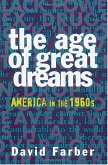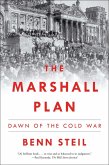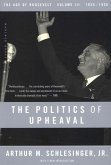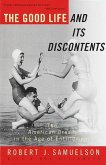In this engaging new book, Howard Chudacoff describes a special and fascinating world: the urban bachelor life that took shape in the late nineteenth century, when a significant population of single men migrated to American cities. Rejecting the restraints and dependence of the nineteenth-century family, bachelors found sustenance and camaraderie in the boarding houses, saloons, pool halls, cafes, clubs, and other institutions that arose in response to their increasing numbers. Richly illustrated, anecdotal, and including a unique analysis of The National Police Gazette (the most outrageous and popular men's publication of the late nineteenth and the early twentieth century), this book is the first to describe a complex subculture that continues to affect the larger meanings of manhood and manliness in American society.
The figure of the bachelor--with its emphasis on pleasure, self-indulgence, and public entertainment--was easily converted by the burgeoning consumer culture at the turn of the century into an ambiguously appealing image of masculinity. Finding an easy reception in an atmosphere of insecurity about manhood, that image has outdistanced the circumstances in which it began to flourish and far outlasted the bachelor culture that produced it. Thus, the idea of the bachelor has retained its somewhat negative but alluring connotations throughout the rest of the twentieth century. Chudacoff's concluding chapter discusses the contemporary "singles scene" now developing as the number of single people in urban centers is again increasing.
By seeing bachelorhood as a stage in life for many and a permanent status for some, Chudacoff recalls a lifestyle that had a profound impact on society, evoking fear, disdain, repugnance, and at the same time a sense of romance, excitement, and freedom. The book contributes to gender history, family history, urban history, and the study of consumer culture and will appeal to anyone curious about American history and anxious to acquire a new view of a sometimes forgotten but still influential aspect of our national past.
The figure of the bachelor--with its emphasis on pleasure, self-indulgence, and public entertainment--was easily converted by the burgeoning consumer culture at the turn of the century into an ambiguously appealing image of masculinity. Finding an easy reception in an atmosphere of insecurity about manhood, that image has outdistanced the circumstances in which it began to flourish and far outlasted the bachelor culture that produced it. Thus, the idea of the bachelor has retained its somewhat negative but alluring connotations throughout the rest of the twentieth century. Chudacoff's concluding chapter discusses the contemporary "singles scene" now developing as the number of single people in urban centers is again increasing.
By seeing bachelorhood as a stage in life for many and a permanent status for some, Chudacoff recalls a lifestyle that had a profound impact on society, evoking fear, disdain, repugnance, and at the same time a sense of romance, excitement, and freedom. The book contributes to gender history, family history, urban history, and the study of consumer culture and will appeal to anyone curious about American history and anxious to acquire a new view of a sometimes forgotten but still influential aspect of our national past.
Dieser Download kann aus rechtlichen Gründen nur mit Rechnungsadresse in A, D ausgeliefert werden.









